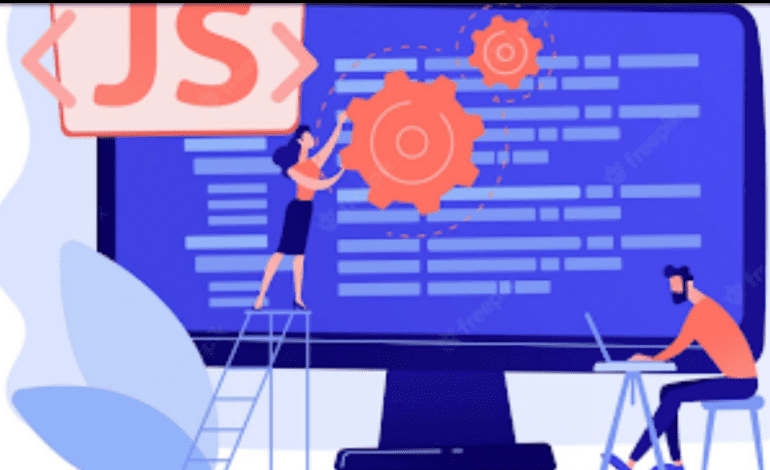There is no doubt that cyber security is a major concern for both individuals and businesses alike. Cyber security threats are on the rise, and they’re becoming more sophisticated each day.
Hackers can now easily steal your personal information, passwords, and financial data. In light of recent high-profile attacks, people need to be aware of how they can protect themselves.
To do this, you must be proactive and take the necessary precautions.
What Are Cyber Security Attacks?
Cyber security attacks are any attack that targets computer systems, networks, or personal devices. The attacks are to steal sensitive data or disrupt normal operations.
Common examples of cyber security attacks include malware, phishing, and denial of service (DDoS) attacks. The motivations for these attacks can vary. However, the end goal is usually to gain access to sensitive information or disrupt normal operations.
The best way to protect yourself is to be aware of the most common cyber security threats and how to avoid them.
Common Cyber Security Threats
- Hackers
Hackers are people who use their computer skills to gain unauthorized access to computer systems and data. They may do this for personal gains, such as stealing sensitive information or damaging files. It might also be for political reasons, such as disrupting a website or spreading malware. Some hackers are also known as crackers.
One way to protect your online information is via public proxies. Although some free proxy servers are easy targets for hackers, there are some proxies for free that can prevent this. Public proxies are also called free proxies. You can use free proxies to anonymously browse the net and hide your IP address from hackers.
- Phishing
Phishing involves scammers sending fraudulent emails or messages that appear to be from a legitimate source, such as a bank or a company. They usually contain a link that leads to a fake website where they ask you to enter personal information, such as your credit card number or Social Security number.
One of the most dangerous cyber security threats is phishing. According to a recent study, nearly 60% of all cyber security attacks are due to phishing. Phishing attacks can be tough to detect and have severe consequences for individuals and businesses.
Never click on links or attachments in an email to avoid a phishing scam. Only do so if you trust the sender! Instead, go directly to the website by typing the URL into your browser.
Image source: Unsplash.com
- Malware
Malware is software that people design to damage or disable computers. It can be installed on your computer without your knowledge and cause serious problems.
These include stealing your personal information or deleting files. Malware can be spread through email attachments, downloads, and websites.
5 Ways to Protect Yourself
- Use Strong Passwords Online and Change them Often
One of the most important things you can do to protect yourself online is to use strong passwords and change them regularly. This may seem like a hassle, but it’s one of the best ways to prevent cyber security attacks.
There are a few simple steps you can take to make sure your passwords are strong and secure:
- First, combine uppercase and lowercase letters with numbers and symbols. An example is DGJT34#Kefj.
- Avoid using easy-to-guess words like “password” or easily accessible personal information like your birthdate or mother’s maiden name.
- Use different passwords for different accounts so, if one of your passwords is compromised, your other accounts will remain safe.
Image source: Unsplash.com
- Make sure your passwords are at least eight characters long because the longer the password, the stronger it is.
Following these simple tips, you can help protect yourself from cyber security attacks.
- Install Antivirus Software on Your Devices
Antivirus software is one way to protect your devices from these attacks. Several different antivirus software programs are available, so choose one that is right for your needs.
Some factors to consider include the devices you use, the operating systems they run on, and the level of protection you need.
Once you have chosen an antivirus program, it is important to install it on all your devices and keep it up-to-date. Regular updates are necessary to ensure that the program can protect you against the latest threats.
If you have multiple devices, you should consider installing a security suite with an antivirus program. This will provide you with comprehensive protection and make it easier to manage your security settings.
It is also essential to keep your operating system and other software up-to-date. Many security vulnerabilities are exploited by malware designed to take advantage of known flaws.
- Be Cautious About the Sites You Visit
The internet can be a dangerous place, and it’s important to be cautious about the sites you visit and the files you download.
There are a few simple steps you can take to protect yourself from cyber security attacks:
- Only visit trusted websites. Avoid clicking on links from unknown sources.
- Make sure your computer and internet security is up-to-date.
- File types to watch out for are .rar, .exe, .js and .iso.
Your IT team should be trained to look for patterns in activity. These include sudden emails with urgent requests and links. They should also be cautious of unknown customers or vendors trying to open multiple duplicate tickets. They should also look for suspicious events happening outside of business hours.
We recommend creating multiple backups and storing them offsite at different secure locations. This way, if one backup becomes infected, another secure backup is available. But only if it has been created beforehand to assure recovery success.
Image source: Pixabay.com
- Use Two-Factor Authentication
Two-factor authentication is an important security measure that protects your online accounts from being hacked by adding an extra layer of protection. It requires you to enter a second code, usually sent to your phone, plus your password.
If a hacker manages to steal your password, they will still be unable to log into your account. This is because they would still need your phone to gain access with 2FA. This makes it much more difficult for hackers to gain access to your accounts and helps to keep your data safe.
While two-factor authentication is not foolproof, it is a very effective way to reduce the risk of being hacked. Many online services, such as Google, Facebook, and Twitter, now offer two-factor authentication and enabling it is a good idea if possible.
- Never Give Out Your Personal Information Online
Giving your personal information online can be dangerous and lead to cyber security attacks. Here are some tips to avoid giving out your personal information online:
- Be aware of phishing scams. Also, be very suspicious of emails, texts, or pop-ups asking for your personal information, even if they look legitimate.
- Strange links could contain viruses that can infect your computer or give hackers access to your email account. Also, don’t fill out any forms that ask for your password or financial information outside of what you’re sure of.
Conclusion
Cyber security threats are on the rise, and they’re becoming more sophisticated each day. Hackers can now easily steal your personal information, passwords, and financial data.
Remember to keep your software up to date and use strong passwords. Also, be careful about the links you click and the attachments you open. By following these five tips, you can significantly reduce your risk of being the victim of a cyber security attack.


